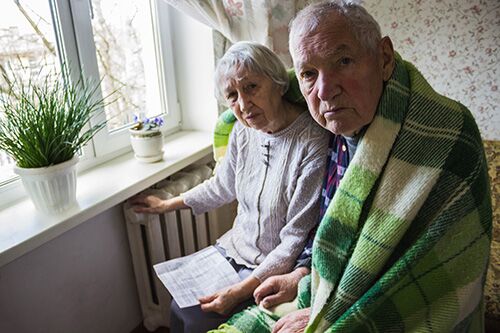European Commission Recommendation on Energy Poverty
On October 20th, 2023 the European Commission published a Recommendation on energy (EU 2023/2407). In the second paragraph they note that “Energy poverty is a multidimensional phenomenon. In many cases, this situation is driven primarily by three underlying root causes, linked to high energy expenditure in proportion to the household budget, low levels of income, and low energy performance of buildings and appliances. The situation of a household can be further influenced by geographic and climate factors, household characteristics, gender, health, and specific household energy and transportation needs. As such, households with higher energy needs, which include families with children, persons with disabilities and older persons, are also more susceptible to energy poverty and to its effects. Women, and in particular those who are single parents and older women, are also particularly affected by energy poverty due to structural inequalities in income distribution, socioeconomic status and the gender care gap.”
The Commission makes twenty five recommendation to the Member States under eight headings, including for example:
Section I — implementation of the legal framework
3. Take advantage of the holistic framework established by the National Energy and Climate Plans to analyse and update the issue of energy poverty in their territory and to reflect on ways to address it.
Section II — structural measures, affordability and access to energy
8. Ensure coherence across policies, in particular between energy and social policies, and avoid contradicting measures. Member States should include energy poverty into wider and integrated social policies and social justice approaches and apply inclusive and empowering policies, particularly for households affected by energy poverty, tenants, people living in social housing and occupying buildings with the worst energy performance.
Section III — Governance
10. Ensure an enhanced governance with a holistic approach to tackle energy poverty, including cross-departmental and vertical collaboration across national, regional, and local governance structures, involving closer engagement with vulnerable households and relevant energy and social partners and stakeholders.
Section IV — Trust, engagement and communication
13. Step up energy efficiency information campaigns targeting households affected by energy poverty, to ensure that those population groups receive tailor-made information and advice while using all the potential of energy advisory networks and one stop shops.
Section V — Energy efficiency
15. Establish regulatory and social safeguards and analyse the policy mix to ensure that housing costs following energy efficiency improvements or renovations of dwellings do not result in excessive increases in rents and housing costs which can lead to unaffordability issues, displacement of residents, evictions and gentrification.
Section VI — Access to renewables
18. Ensure that households affected by energy poverty are enabled to be part of the decarbonisation gains and a socially just transition. All households should have equal access to the use of renewable energies, and innovative energy technologies and benefit from the phase out of fossil fuels in the heating sector.
Section VII — Skills
22. Offer targeted training courses for energy-poor households affected by energy poverty, including those with low digital skills. Such courses should enhance the energy and digital literacy awareness of households affected by energy poverty, enable them to better control their energy bills and participate actively in the clean and just energy transition.
Section VIII — Financing
25. Support the development and scaling up of innovative financing schemes for renewable energy and energy efficiency actions and schemes dedicated to energy-poor households affected by energy poverty.
Further information is available linked here.
MESL Research Centre Working Paper
On November 16th, 2023 the MESL Research Centre published a Working Paper entitled The cost of adequately heating the home. In it they note that the value of current energy-related income supports and other social welfare payments has been eroded over the current inflationary period.
This Working Paper examined the cost of household energy using the Minimum Essential Standard of Living (MESL) data, demonstrating the impact of dwelling efficiency and method of purchase on these costs. Energy poverty typically results from the interaction of three key factors: the energy efficiency of a dwelling; the cost of household energy; and household income.
This publication identified the minimum energy need for four household types, calculating the variation in cost by level of dwelling efficiency and method of purchase. It also examined the potential burden of energy poverty for the household types in social welfare and national minimum wage scenarios.
In the final paragraph they note that “There is a question regarding whether Fuel Allowance and the Household Benefits Package remain fit-for-purpose. It is clear that the fixed nature of the payments are not responsive when prices are volatile in the energy market. This paper has explored the potential impact of introducing a support mechanism based on a household’s minimum energy need in the form of an Energy Guarantee. Further research is required to explore alternative policy measures such as an Energy Guarantee to support vulnerable households to meet minimum energy needs.” (p44)
Further information is available linked here.
